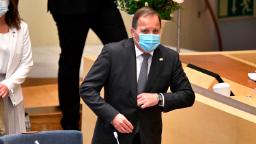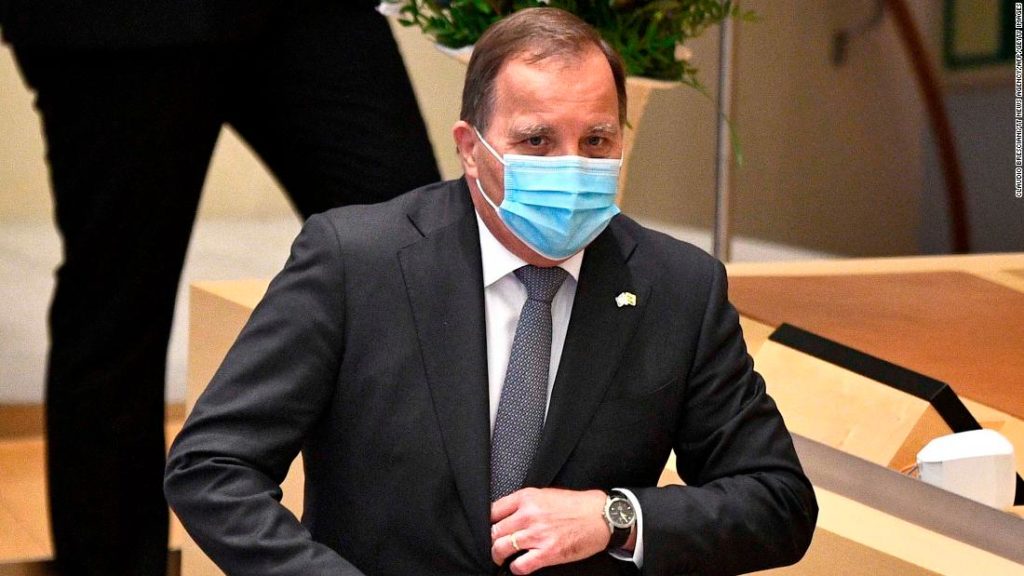
The Social Democrat leader has a week to resign and hand the speaker the job of finding a new government, or call a snap election.
The nationalist Sweden Democrats had seized the chance to call the vote after the formerly communist Left Party withdrew support for the center-left government over a plan to ease rent controls for new-build apartments.
Löfven’s party was in a minority coalition with the Green Party and relied on support in parliament from two smaller center-right parties — the Centre Party and the Liberals — and the Left Party.
Sweden Democrat leader Jimmie Akesson told parliament the government was harmful and historically weak, adding: “It should never have come into power.”
The no-confidence motion, which required 175 votes in the 349-seat parliament to pass, was supported by 181 lawmakers.
Speaking in parliament on Monday, Löfven said Sweden was now in a “difficult political situation,” adding that as the Left Party had united with the “right-wing conservative parties” to back the no-confidence vote, it was a “temporary majority that was created.”
“It is a group of parties only aiming to vote out the government, but which have differing views on the issues and lack the will and ability to present an alternative to the government,” Löfven said, adding that he would hold discussions with other parties and decide whether to resign or call snap elections within a week.
The Left Party blamed Lofven for triggering the crisis.
“It is not the Left Party that has given up on the Social Democrat government, it is the Social Democrat government that has given up on the Left Party and the Swedish people,” Left Party leader Nooshi Dadgostar said.
With parliament deadlocked, it is not clear to whom the speaker might turn to form a new government if Lofven resigns. Opinion polls suggest the center-left and center-right blocs are evenly balanced, so a snap election might not bring clarity either.
Dadgostar said that even though her party had voted against Lofven, it would never help “a right-wing nationalist government” take power.
A new government — or a caretaker administration — would sit only until a parliamentary election scheduled for September next year.
You may also like
-
Afghanistan: Civilian casualties hit record high amid US withdrawal, UN says
-
How Taiwan is trying to defend against a cyber ‘World War III’
-
Pandemic travel news this week: Quarantine escapes and airplane disguises
-
Why would anyone trust Brexit Britain again?
-
Black fungus: A second crisis is killing survivors of India’s worst Covid wave

